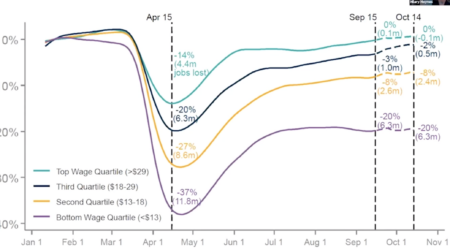Within the next 30 years, slow-onset climate change may impel as many as 143 million people living in the Global South to relocate within their countries of origin. Longer-range forecasts predict that by 2070 rising temperatures may render one-fifth of the earth’s landmasses uninhabitable, forcing international migration on a massive scale. Among the displaced, low-income populations will be particularly vulnerable, and cities in the Global North may have to absorb and provide services for these immigrants. Given the politicization of migration in recent years, and the lack of international policies to protect climate refugees, climate change is anticipated to reinforce global inequalities.
Recorded on December 11, 2020, a Matrix On Point panel discussion brought together a group of esteemed scholars to discuss the humanitarian, ecological, and geopolitical impacts of climate migration, along with forward-looking policies that can help mitigate displacement, address global inequalities, and support refugees forced to leave their homelands due to extreme weather, devastated ecosystems, and other climate-related issues. This event was presented by the University of California, Berkeley’s Social Science Matrix (as part of the “Matrix on Point” series), and co-sponsored by the Berkeley Interdisciplinary Migration Initiative, Center for Effective Global Action, and Human Rights Center.
Panelists included Kanta Kumari Rigaud, Lead Environmental Specialist at the World Bank; Daniel Kammen, Professor of Energy at the University of California, Berkeley, with parallel appointments in the Energy and Resources Group where he serves as Chair; the Goldman School of Public Policy, where he directs the Center for Environmental Policy; and the Department of Nuclear Engineering; Elizabeth Fussell, Associate Professor of Population Studies and Environmental Studies at Brown University; and Teevrat Garg, Assistant Professor at UC San Diego. The panel was moderated by Irene Bloemraad, Professor of Sociology and the Thomas Garden Barnes Chair of Canadian Studies at Berkeley, and Founding Director of the Berkeley Interdisciplinary Migration Initiative.
Watch the video above or on YouTube


